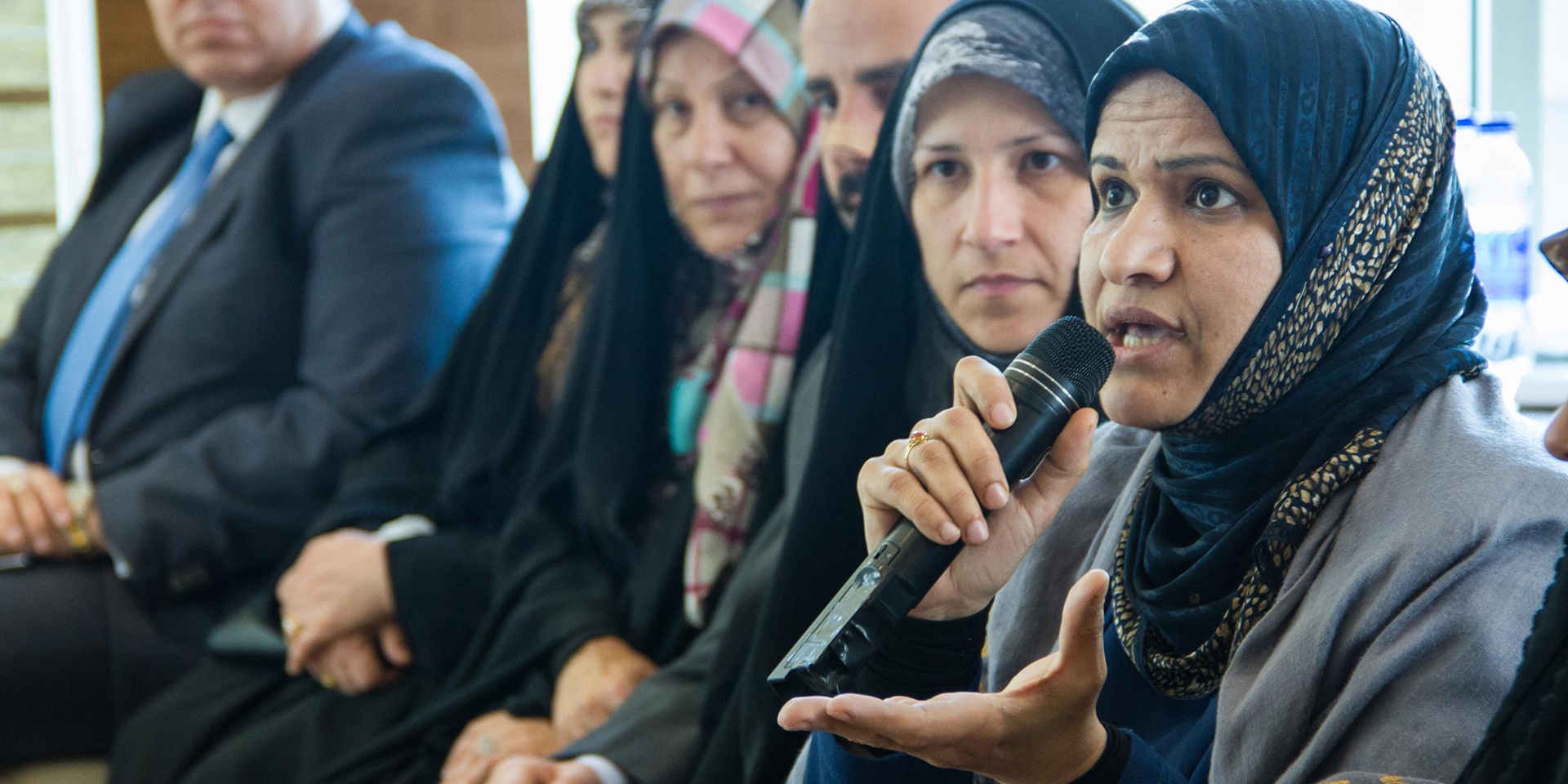
4 Recommendations for “Thinking and Working Politically” on Local Governance Projects
April 20, 2016 | 3 Minute ReadIraqi women speak up at the Developing Local Legislation to Stop Violence Against Women Conference.
As Sharon van Pelt argued in her recent blog post, politics are an inescapable reality for any international development project and must be factored into project design and implementation. The “thinking and working politically” concept is catching on, and more development practitioners are using political economy analysis to understand national-level politics in the countries where they work. Projects can benefit from these studies, but we also need to dig deeper to understand politics at the sub-national levels, where so much of the work we do takes place. This is particularly true when it comes to local governance programs, which often deal with tangible issues such as service delivery, accountability, revenue generation, and decentralization.
To better understand what works and what doesn’t in local governance programming, Chemonics researchers recently looked at three of our current and recent local governance projects — specifically, USAID-funded projects in Iraq, Colombia, and Moldova. We selected these projects because they operate within various levels of state fragility and offer a window into the competing priorities and factors that charted the courses for implementation. In Colombia under the Consolidation and Enhanced Livelihood Initiative – Northern and Southern Regions (CELI N/S), there was a need to establish a state presence in the areas of project implementation at the outset. Under the Iraq Government Strengthening Project and the Moldova Local Government Support Project, state legitimacy as the provider of basic services was strong enough in the areas of project implementation to focus on longer-term, gradual local government capacity building, with varied levels of political accountability, although this shifted over time in Moldova.
What we noticed was that with all three projects it was imperative to understand the political context at multiple levels. With this overarching point in mind, below are some specific programming considerations for “thinking and working politically” to improve local governance in developing countries.
- Adapt to the fluid political environment in fragile contexts. The political realities that exist at the time that a development program is launched may shift dramatically throughout the life of the project, often unpredictably. It is only by continually taking a read on the political context and its unique dynamics and implications that implementers can shape interventions to be responsive to immediate local needs while remaining mindful of long-term goals and sustainability. A local governance project’s ability to respond quickly and appropriately to a community’s needs is paramount to establishing credibility and trust.
- Recognize the importance of incentives. Given the political dynamics of local governance, decentralization, and service delivery, practitioners must consider the motivations of the elected and appointed officials involved, not to mention citizens and service providers. Introducing programmatic incentives, such as providing training or resources to participants, while often making sense strategically, should be done with caution and consideration of the ways in which increased power or resources at the local level correspond with mechanisms for accountability. Projects that foster local government transparency in budget planning and spending, as well as build capacity for citizen engagement, can help to develop new accountability mechanisms.
- Understand trade-offs without losing sight of long-term governance objectives. Local government service delivery projects prioritizing stability may shift emphasis away from long-term government capacity building objectives to more immediate service delivery goals. While all local governance projects need to adapt to political realities, it is critical that they consider longer-term governance objectives to support local institutional capacity to deliver quality service to citizens long after the project ends.
- Address local revenue generation and encourage local governments to support reforms by sharing the costs. The link between own-source revenue and increasing accountability at the local level is well known, but efforts to promote revenue generation often face political economy challenges which require a multi-level approach. Cost-sharing also demonstrates the government’s commitment to own, sustain, and be held accountable for reforms, and demonstrates return on investment.
What are your thoughts about politics and local governance programming? As we continue to research these topics, we invite readers to leave their comments.












